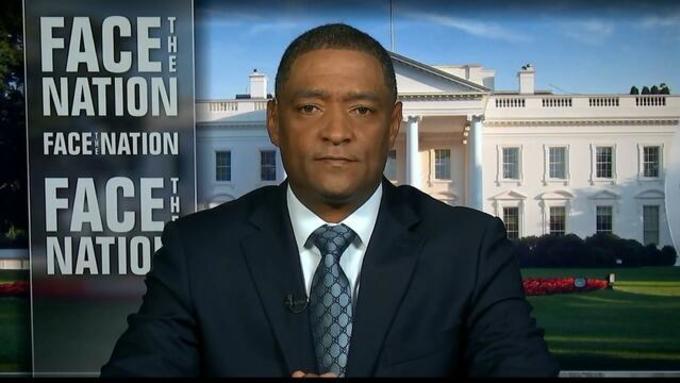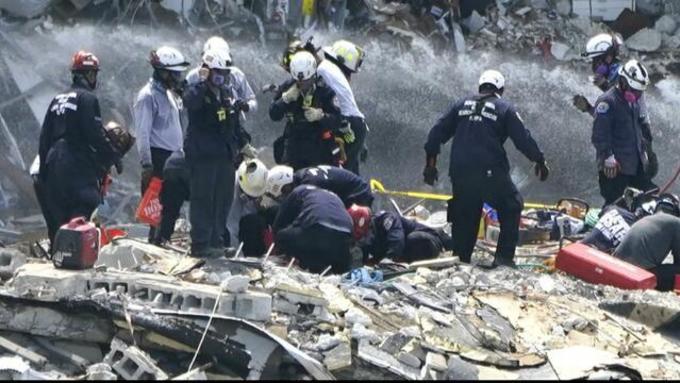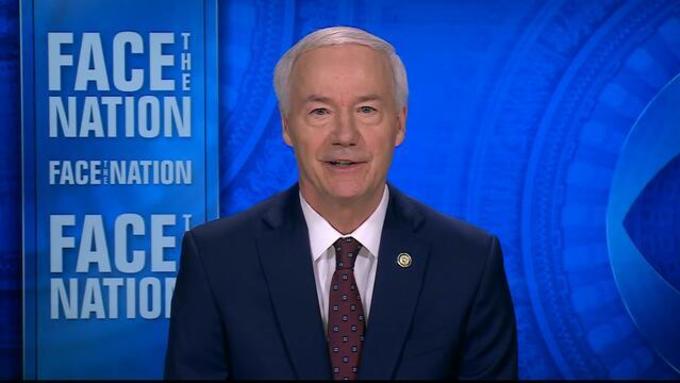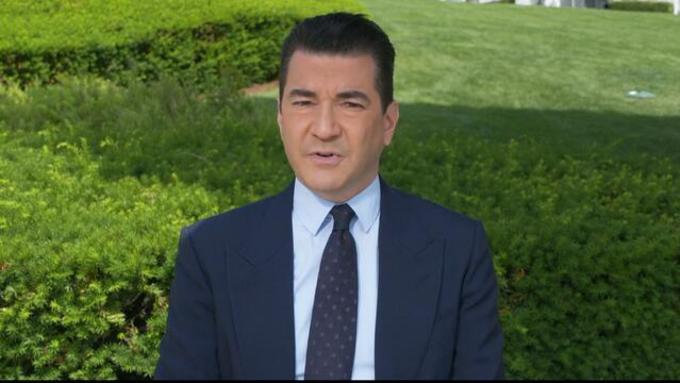| "99% of the focus is on trying to find any survivors and give these families closure on this terrible tragedy." -Senator Marco Rubio on the Surfside condo collapse search and rescue efforts
Welcome to the "Face the Nation" Five at Five newsletter. Scroll down for your five takeaways from today's broadcast of "Face the Nation" with Margaret Brennan on CBS. Did someone forward you this? Sign-up at cbsnews.com/email. 1. Richmond says the White House is ready to "fight hard" for second infrastructure proposal  White House senior adviser Cedric Richmond said Sunday that the Biden administration expects to "fight hard" for a larger spending package that will encompass many of President Biden's infrastructure priorities after a deal on a more targeted, bipartisan package was reached last week. What Richmond said: "Where Democrats and Republicans can agree, we should agree, move on, create progress for the American people. And where we don't agree, we can fight and we can fight hard. And that's what we expect to do on American Families Plan. But we also expect to win." Why it matters: Standing alongside a group of 10 Senate Republicans and Democrats at the White House on Thursday, Mr. Biden announced a deal had been reached on a $1 trillion proposal focusing on "traditional" infrastructure like roads, bridges, railways and broadband. But the mood among Senate Republicans quickly soured after the president later suggested he would only accept the bipartisan legislation if a more sweeping measure expected to pass with only Democratic support also makes it to his desk. The second bill, which will be passed through the process known as budget reconciliation, would include the president's priorities on child care, education and health care, known as the American Families Plan. 2. Uncovering the cause of the Surfside, Florida, condo collapse could take months  No survivors have been found in the Surfside building collapse since Thursday. Officials say it could take months to determine the cause of the collapse. CBS News senior national correspondent Mark Strassmann reports from Surfside, Florida, with the latest on the search and rescue efforts. 3. Hutchinson says final FDA approval of COVID-19 vaccine would help fight hesitancy  Arkansas Governor Asa Hutchinson said Sunday he believes final, non-emergency use approval from the Food and Drug Administration (FDA) of coronavirus vaccines would help combat hesitancy among Arkansas residents to get their shots. What Hutchinson said: "Whenever they see emergency use authorization, then they say, well, they haven't made a final approval, they haven't got all the research completed that is needed on there. They want to do more study. And so it was approved as emergency use. And so for that reason, you can't mandate it. We don't mandate it in Arkansas. We have to rely upon the education." Why it matters: All three coronavirus vaccines being administered in the U.S., from Pfizer, Moderna and Johnson & Johnson, received emergency use authorizations from the FDA, though the agency notes this is not approval. All three have been shown in clinical trials to be highly effective at safely preventing infection and serious illness from the coronavirus. 4. Gottlieb says parts of U.S. could see "very dense outbreaks" as Delta variant spreads  As the U.S. continues to navigate its way through the COVID-19 pandemic, Dr. Scott Gottlieb, the former commissioner of the Food and Drug Administration, said areas of the country could experience "very dense outbreaks" with the concerning Delta variant continuing to circulate. What Gottlieb said: "It's going to be hyper-regionalized, where there are certain pockets of the country [where] we can have very dense outbreaks. I think as you look across the United States, if you're a community that has low vaccination rates and you also think that there was low immunity from prior infection, so the virus really hasn't coursed through the local population, those communities are vulnerable," he said. "So, I think governors need to be thinking about how they build out health care resources in areas of the country where you still have a lot of vulnerability." Why it matters: The most vulnerable areas continue to be those with low vaccination rates and low rates of immunity from prior infections. According to the Centers for Disease Control and Prevention, many southern states have vaccination rates that lag behind the national average. 5. A thank you to all first responders As the effort to find the victims of the Surfside condo collapse continues in Florida, John Dickerson reflects on the heroism of first responders who rush to endanger their lives in the hope of saving the lives of others. | 
No comments:
Post a Comment